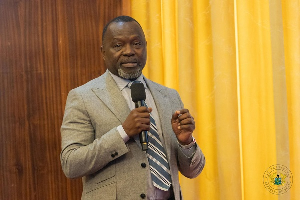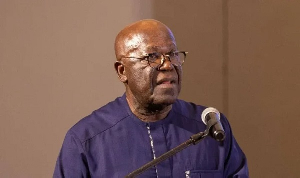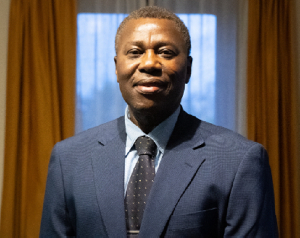On 6th march, 1957 Dr Kwame Nkrumah secured the independence of the then Gold Coast and adopted the name Ghana due to the connection these people had with the erstwhile Ghana Empire. He further made the state a republic one on 1st July, 1660. Soon after independence, Ghana picked up the mantle of social, economic and infrastructural development under the leadership of its first Prime Minister and President, Osagyefo Dr Kwame Nkrumah. During his reign, he built the now deteriorating Tama motorway, Tema township and Harbour, established innumerable state enterprises, strengthened the then Kumasi college of technology into the now Kwame Nkrumah University of Science and Technology, and most important of all, instilled a can do attitude in the Ghanaian and the African at large. It was during his reign that the whole world acknowledged the fact that the Blackman is capable of managing his own affairs. Ghana since then has been a model and yardstick for other African countries and even countries beyond the borders of Africa—those under cruel colonial oppression. The rule of Osagyefo put the country on the wheels of sound and accelerated economic development. All of a sudden, British dominated Ghana became internationally recognised and she had in international politics and spearheaded the anti-war Non Align Movement (NAM).
Then unexpectedly, there was a turn over of events. Nkrumah’s government was overthrown on 24th February, 1966 a few days after he commissioned the nation’s premier power project, the Akosombo Hydroelectric Dam in January. All projects under construction came to an instantaneous halt and the promising economy started retrogressing. The skeletal remains of these projects which have not received any attention since then are scattered all over the country; for example the proposed gold refinery plant in Tarkwa and the food storage silos in Tema. The situation became more unmanageable when coups dominated the Ghanaian front from late 1960s to early 1980s. These juntas which pretended to protect the interest of the people later misused national assets; it is often said that some even used the wealth of the country to buy estates and cars for their numerous mistresses.
Currently, the known names in Ghanaian politics are the two leading parties NDC and its rival NPP. These are the known two most popular parties in the countries. These parties have managed to misinform and mislead the general electorate to the extent that the average Ghanaian associate every issue of national interest with either of these political parties and with gross subjectivity. Could it even be imaginable that people consider the infernos currently devouring Ghana with such political hypocrisy? This type of politics is also associated with sophisticated political indiscipline as displayed by NPP boy Nana Darkwa. Can this kind of politics lead Ghana to the promise land?—to economic independence and the better Ghana we are dreaming of? It is expedient we consider our politics again in this time Ghana is likely to become an icon in Oil Production.
Ghana has not planned to fail, but rather we have fail to plan and get our priorities right. It is awful to note that after 53 years of independence about 60% of the countries budget is funded by “beggary”. Failing to plan has created complicated problems which have slapped the economy from various sectors—health, education, sanitation, environmental etc. Some have stated categorically that our country lacks vision, in sectors where there is a vision at all, it is narrow and there is no commitment on the part of the leadership of such institutions. At this moment, it is eminent that the country plan on both long term and short term basis. One institution which is suffering from poor management and planning is the National Insurance Scheme. It is currently suffering from corruption and mismanagement, at the District, National and Regional levels. Well, their situation is not different from the excruciation, collapsed state institutions have suffered. Obviously, these political rivals who have ruled the country for the past 18 years have not found a lasting solution to these complex political, social and economic problems. They have also failed to project the country to a state where the every Ghanaian would have sufficient confidence in his motherland and they have resorted to blame game politics.
Conclusion
Getting things done in the right way is very crucial at this stage of national development—especially when huge commercial oil quantities have been discovered in the country. It is eminent that we abandon this kind of derogatory politics and forget about NPP and NDC in our minds; if we would remember them at all, we should do so when it is time for us to go to the pools in presidential and parliamentary elections. They have nothing good to offer Mother Ghana. Now, sound economic, social and political planning which can be sustained is what can take us to the promise land of economic independence.
Eugene Sam-Okyere
[Email: ugsam2000@yahoo.co.uk]
Opinions of Saturday, 6 March 2010
Columnist: Sam-Okyere, Eugene














